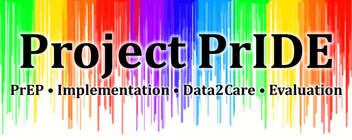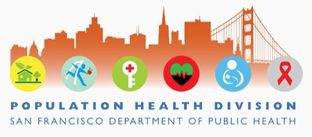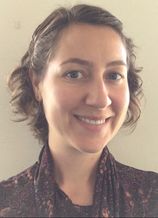|
'Guest Blog | Alyson Decker, NP, MPH | San Francisco Department of Public Health Tags: Detailing Visits, HIV/AIDS, PrEP, Sexual Health  Our AD program is part of a 3-year demonstration project (CDC Project PrIDE), and as part of our grant-funded work our overarching goal is increasing PrEP access and prescribing to MSM (men who have sex with men) of color and transgender persons who are at substantial risk of acquiring HIV. Our goals include improving sexual health in the primary care setting, refining sexual health history-taking, increasing screening and testing for those with risks, promoting best practices around PrEP prescribing, and helping to establish relationships between our health department and our community providers.  The added benefit of public health detailing is that it also increases awareness about the issues that affect our community. I have been inviting clinicians that I meet to join us in our city-wide Getting to Zero consortium, which helps providers feel that they are part of this important movement of preventing HIV transmissions, deaths, and stigma.  In San Francisco, there is a need for urgency around this issue, especially because it’s become evident that as HIV transmissions continue to decrease, the disparities among new HIV positive diagnoses become more apparent. Many of these disparities are among communities who still may not be aware of PrEP, or are facing barriers to access. Our academic detailing program strives to reach the providers who work with these vulnerable communities.  When kicking off an intervention such as this, identifying the clinicians who see this target population is the first step. To do this, we used STD surveillance data to determine which providers and clinics were diagnosing syphilis and rectal gonorrhea and chlamydia, which are associated with an increased risk for HIV. However, since many providers are not performing appropriate screenings, we also reached out to clinics known to serve our priority population and those located in neighborhoods with the highest HIV incidences.  The next step is how to “get in the door” with these clinicians, which means finding a way to secure a 1:1 visit. I’ve found that initial non-responsiveness isn’t the end of the world—persistence pays off, so keep trying to get in the door, or find an entry point through other community contacts. Sometimes, choosing a different access point can really work well to start a relationship. There are many places where 1:1 visits aren’t feasible due to clinic structure or culture. If I’m able to detail to a small group, it can be a way to meet with a few providers and gain insight about how PrEP might be incorporated or enhanced in their setting. Being invited to an all-staff meeting is often an excellent way to kick off an introduction to this important intervention, and can result in follow-up conversations with individual clinicians. One benefit of meeting in small groups is that if a clinician hears a fellow clinician say that he or she is already prescribing PrEP, there may be more openness to discussing the topic; other providers might feel comforted in having a PrEP "ally", resulting in buy-in from the clinic overall. Some clinicians may think that this type of intervention isn’t relevant to their patient population; as I detailer, I often hear responses such as, “I don’t see this population reflected in my practice,” or “My patients don’t have this risk,”, even if it’s been proven that these clinics do, indeed, serve priority populations. In order to talk about PrEP, you first have to talk about risks for HIV, which often means talking about sex. I think there can be discomfort on both the patient and provider side, and sex is often still a stigmatized topic. There are also overarching resource barriers, including the fact that clinicians are extremely busy and have to address competing health needs in the primary care setting.  While a small pool of clinicians have minimal understanding of PrEP, and require a basic overview about elements like identifying potential PrEP candidates, how to take a good sexual history, and how to bring up PrEP in an appointment, I’ve found that many clinicians are aware to some extent about PrEP already, and are interested in next-level details about how to implement it. This might include what kind of testing is recommended, how to increase number of basic screens, and increasing their knowledge about comprehensive health. There are also providers who are very advanced in their knowledge of what options are available to populations with risks for HIV. This is where the academic detailing becomes more intricate; some providers are seeing lots of patients with risk factors, and may have been prescribing PrEP already. In a scenario such as this, my messaging focuses more on how to support clinicians in ensuring consistent follow-up with their patients, or in how to deal with multiple risk factors, such as when high-risk sexual behavior may overlap with instances of substance use or homelessness. For those who are just getting started, it may help to know that even after meeting with 300 providers, I still get nervous each time I prepare to detail, especially if I’m unfamiliar with a practice. Regardless of the nature of my visits, I walk away feeling that I’ve accomplished something if I’ve answered only one question that’s helped the clinician with his or her practice. And I’ve found that in most cases, the people I meet with are very thankful for this service, and are appreciative of the health department. I always thank providers for the work they do and remind them what an important role they have in the community.  Biography. Alyson Decker, NP, MPH Alyson Decker is a Clinical Prevention Consultant and nurse practitioner with Disease Prevention & Control at the San Francisco Department of Public Health. As the branch’s lead academic detailer, she helped develop San Francisco’s first HIV pre-exposure prophylaxis (PrEP) detailing program. Her role consists of detailing with community providers to increase PrEP prescribing in the primary care setting and promote best prescribing practices. In addition, she provides training assistance to healthcare providers and frontline staff around improving sexual healthcare and STD testing and treatment. She also sees patients at the municipal sexual health clinic, San Francisco City Clinic. Comments are closed.
|
Highlighting Best PracticesWe highlight what's working in clinical education through interviews, features, event recaps, and guest blogs, offering clinical educators the chance to share successes and lessons learned from around the country & beyond. Search Archives
|
